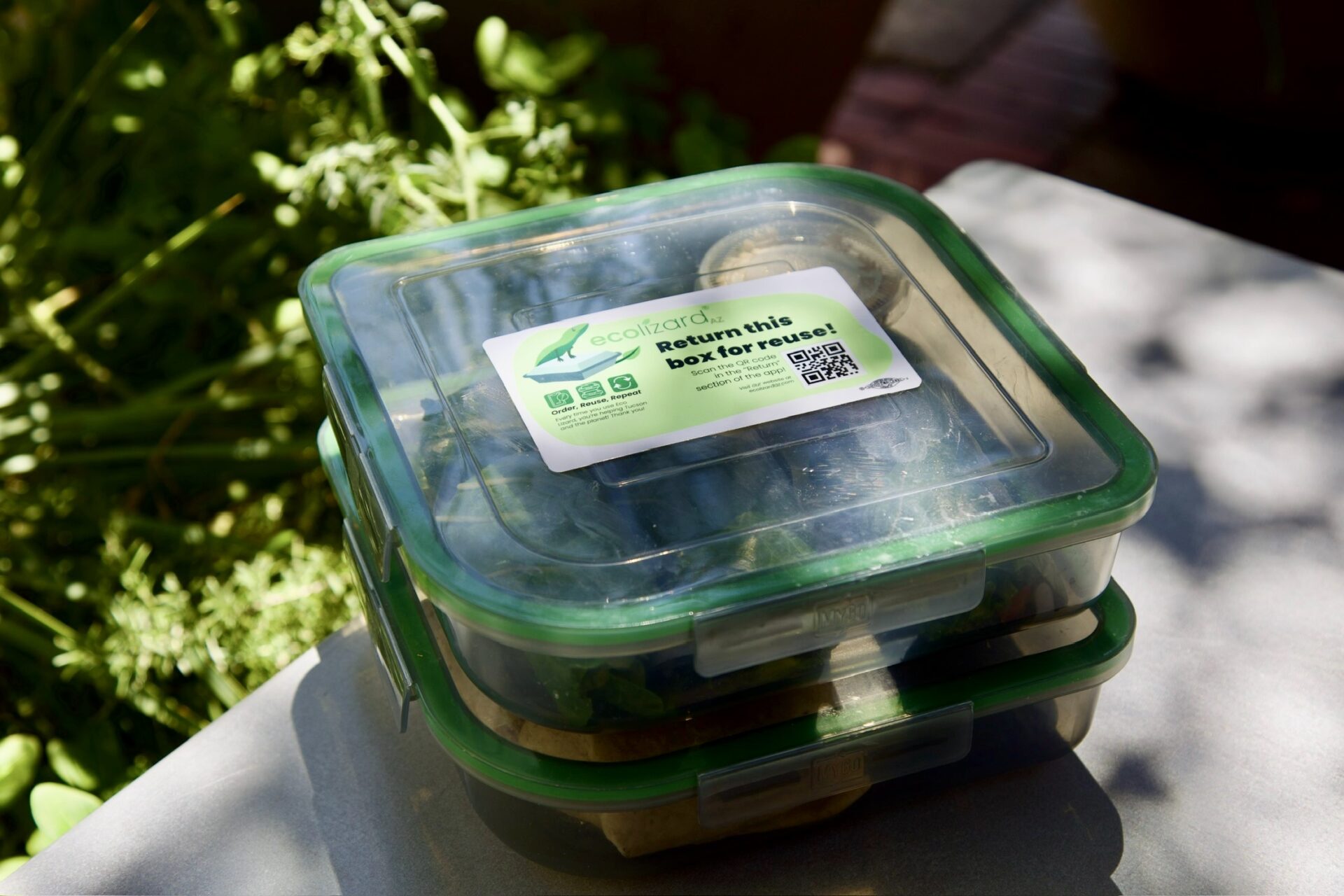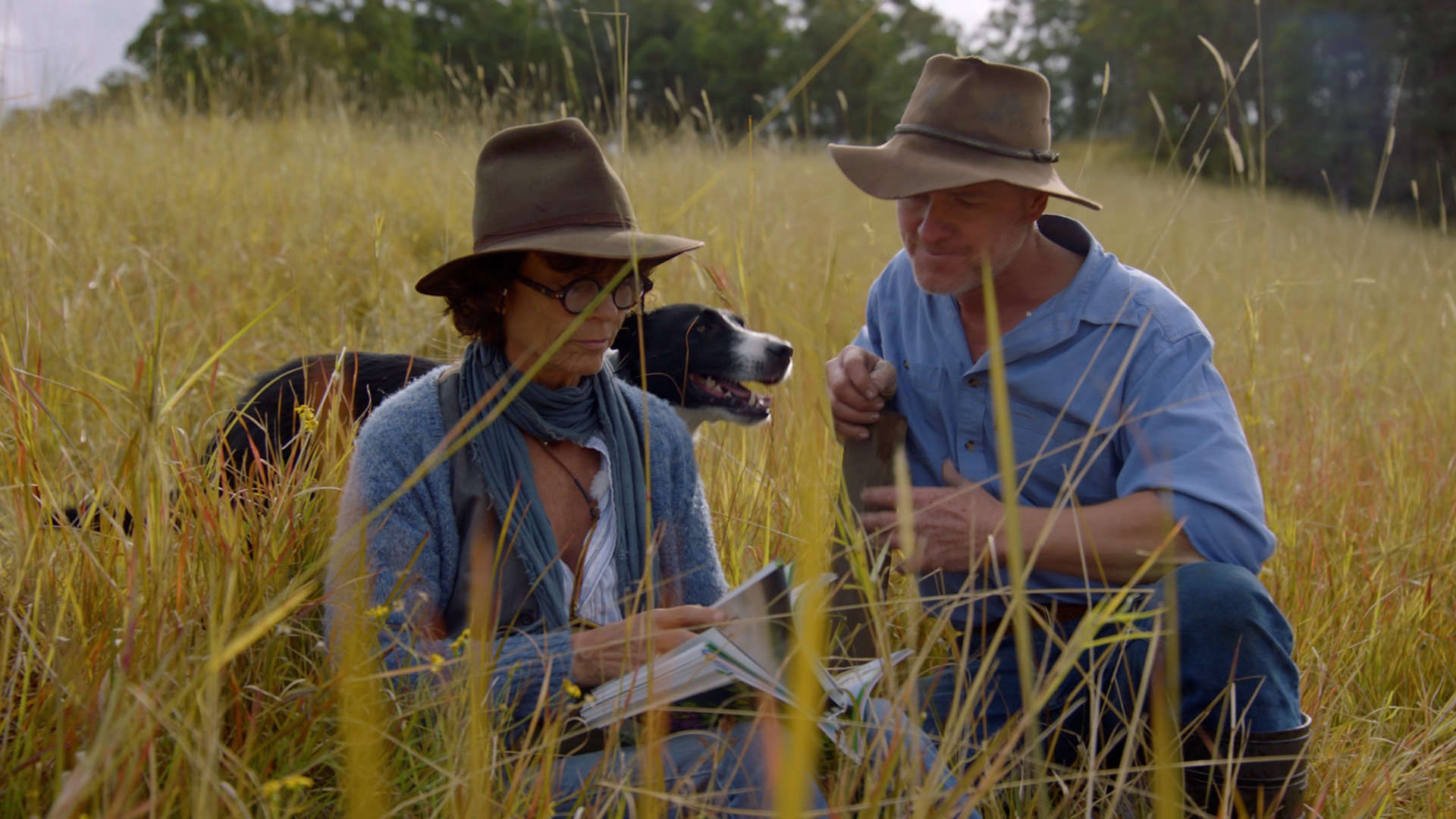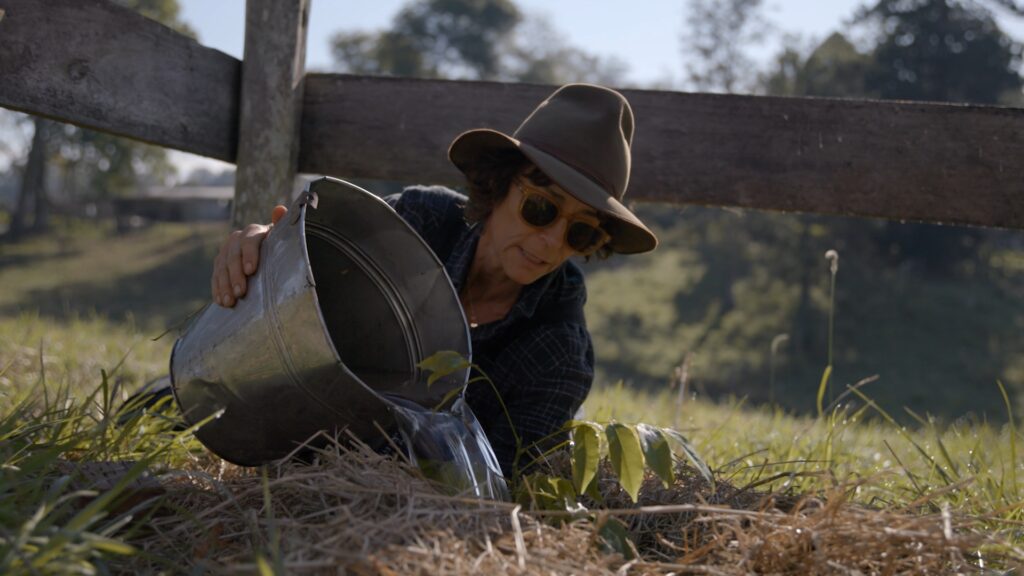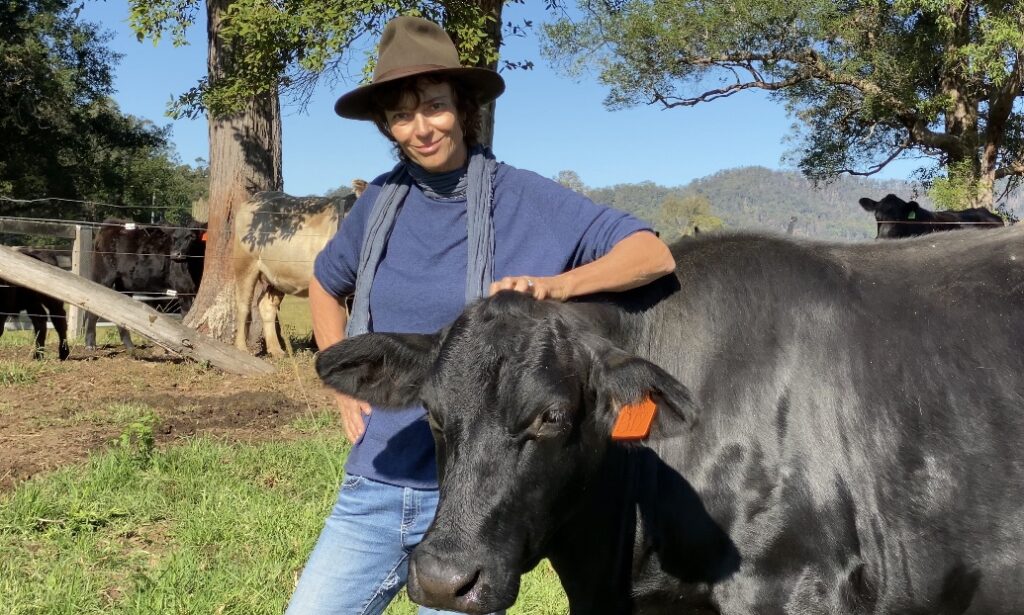

In the heart of ecological sustainability, where the Earth’s soil tells a story of renewal and resilience, film director Rachel Ward embarks on a transformative journey. “Rachel’s Farm” gives you front-row access as Rachel transforms into a prominent figure in Australia’s movement to restore farmland, food, and the environment.
This documentary offers an intimate view of Rachel’s personal evolution, featuring candid interviews with her family and the individuals who sparked her transition to farming. It’s a narrative for anyone passionate about their food, soil health, and the evolving role of women in agriculture.
Catch a screening of “Rachel’s Farm” during Film Fest Tucson on Friday, October 13, at 8 p.m. in the Scottish Rite Red Room.

Me: In the film, you embark on a journey of personal transformation along with the land. Can you share a moment during this process that had a profound impact on you? Something that may not have made it into the final cut of the film.
Ward: I found the experience of being alone a lot of the time enabled me to listen and observe nature more. I was married at 25, and I’ve been with my family every day ever since. During COVID, my husband and I were separated. He stayed in town, I stayed on the farm. My marriage is healthy but I was surprised by how much joy I got just focusing on the farm, the grass, the wind, the beauty, the cattle.
The smaller my life became, just being with myself and nature, the richer it was in many ways. That was a revelation. It’s a happier place for me at this time of life.
Me: This film highlights the resilience of nature. What’s one particular aspect of nature’s ability to bounce back or adapt that surprised or inspired you during the making of the film?
Ward: When you see land go from one extreme of drought to flooding and the devastation of fires that we see in Australia, you see huge swings from dysfunction to function. Immediately the event passes, and the ability of nature to heal herself is astounding. Leaves appear in trunks of burnt-out trees. The small water cycle of dew keeps cycling even in drought if you have adequate ground cover.
I was surprised that water events were more destructive than drought. The grass goes rank and unpalatable, and deep erosion scars form where water escapes. In drought, everything just shuts down and waits. When the rain comes, the land explodes with abundance.

Me: Can you describe a specific moment or experience on your farm that made you feel particularly connected to the land, something that reinforced the idea that the Earth has its own story to tell?
Ward: I have a big dam that sits under the house, and just the other night I was sitting on the veranda at twilight and was overwhelmed by the life on that body of water. Everything starts from water. The water birds — ducks, geese, swans — then the hundreds of egrets that roost on the island. The parrots of every kind, raucously competing for my wild bird seed. Kookaburras closing off the last light of day with a trilling chorus back and forth to each other. Then a couple of owls swooping from the tree in front of me, and finally, a possum climbing down from my roof to scamper along the veranda, hopping over my feet and away. Sit quietly and life on Earth reveals itself.
Me: How do you hope your experiences and the film will influence the way your family and others interact with and care for the land in the future?
Ward: I hope my film is a little counter-nudge to the way industrialized farming is dominating our farms and food supply. It would be a great mistake to take land away from small independent farmers and hand over our food system to the hands of huge corporations. We must start operating outside of locked-in food chains that prioritize cheap food, where land and health are compromised, and shareholders’ profits.
We must start buying straight from farmers who can prove their best practices involve looking after their land and delivering chemical-free, nutrient-dense food. This way, these farmers will survive and more will join them. If this way reflects your values, you can be hugely effective by buying directly from farmers markets or the farmers themselves. Many have direct-from-the-farm meat and egg businesses. Find them and support them.
“Rachel’s Farm” will be screening at this year’s Film Fest Tucson on Friday, October 13, at 8 p.m. The film is a little under 90 minutes long and will be shown in the Scottish Rite Red Room.
For more information on all of the films at this year’s Film Fest Tucson, visit filmfesttucson.org.
Love Tucson food? So do we. That’s why our stories are free to read — and focused on the chefs, farmers, and restaurants that make Tucson so delicious.
👉 Get exclusive perks & support local with the Foodie Insiders Club and learn how to eat local year-round.